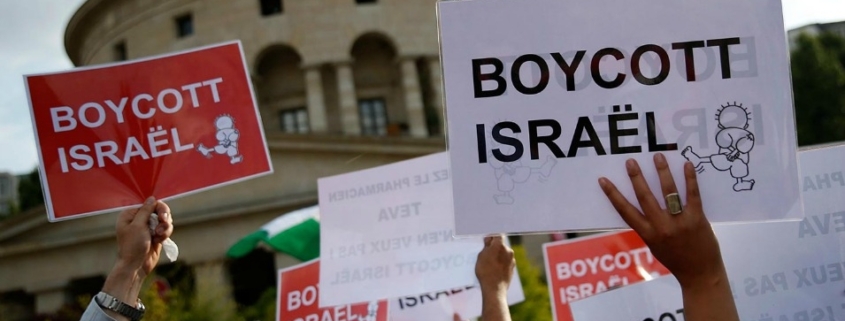BDS War Rhetoric
The BDS movement since its inception in 2005 has been searching far and wide for supporters. Their website is complete with propaganda videos in an attempt to win the hearts of viewers in support of their cause. Their social-media outlets name-drop famous celebrities and companies that have pledged support for BDS, in an attempt to sway influential Internet users towards their cause. While the movement continues its slow pace of garnering support, counter-BDS initiatives have been becoming stronger (as seen with Florida becoming the 5th State to pass anti-BDS legislature on December 21st, 2015). Due to their fear of taking steps backwards, the BDS movement has decided to adjust its strategy to fit the times; a time that has seen a large wave of Palestinian terror, beginning in September of last year, continuing as we flipped our calendars to 2016. They have done so by increasing their use of war and battle cry rhetoric to “rally up the troops,” as has been done with Palestinian civilians to carry out terror missions against Israeli and Jewish civilians.
On January 6th, a BDS social media account re-tweeted a post describing the French telecommunication corporation Orange severing ties with Israel as, “#BDS claims another scalp.” This statement changes the undertone from the peaceful movement they claim to be, to setting a stage of war and violence aimed at harming the Jewish State and those that conduct business there. On January 13th, following an announcement by the United Methodist Church that they will not invest in five Israeli banks, the BDS webpage stated that, “we are getting closer to a united Christian front” in a so-called “moral and effective stand against Israel.” A “moral stand” that infers that the more “scalps” the better, effectively adding the BDS movement to the list of inciters in the recent wave of Palestinian terror. This recent shift in their strategy is a legitimate cause for concern, as everyday its twitter following, which exceeds 50,000, is gradually exposed to this malicious rhetoric supporting violence.

